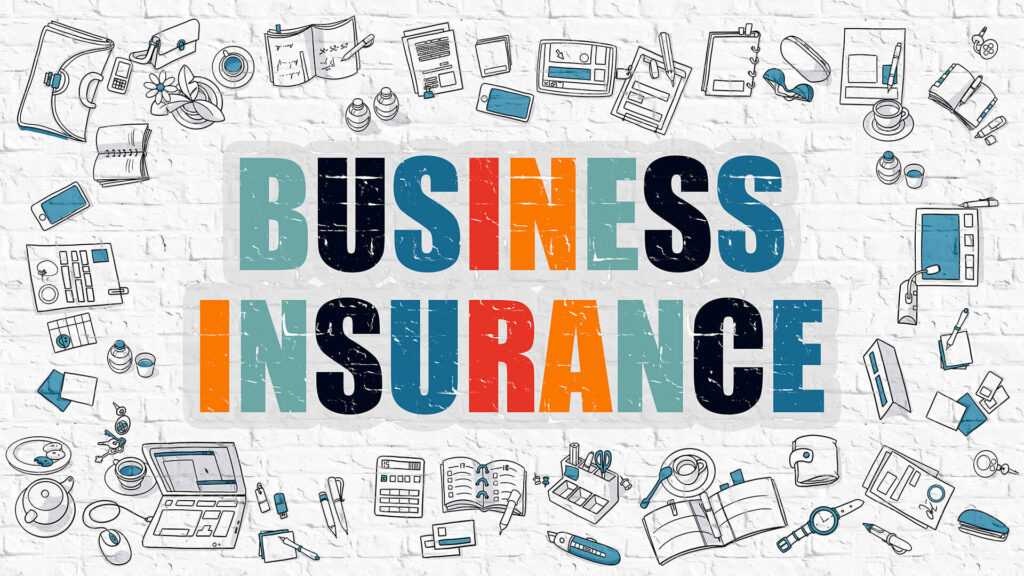Starting and running a business is a significant achievement, but with it comes many potential risks and uncertainties. To safeguard your investment, it’s crucial to understand the world of business insurance. In this article, we’ll explore five essential types of business insurance that can provide you with peace of mind in the face of unexpected events. These policies act as a financial safety net, offering protection against various forms of loss depending on your specific needs and circumstances.
1. Professional Liability Insurance
Professional Liability Insurance, often called Errors and Omissions (E&O) insurance, is like a safety net for your business’s reputation. It steps in to protect you when mistakes happen, and they will. No matter how careful you are, unforeseen errors, oversights, or negligence can occur. Professional Liability Insurance ensures legal claims from your professional services do not financially burden you.
Every business is unique, and this insurance reflects that. Policies are customized to fit the specific needs of your company. So, if a lapse in judgment leads to a claim against your business, this insurance will have your back.
2. Property Insurance
Imagine you walk into your office one morning, and it’s been ravaged by a fire or hit by a break-in. Property Insurance is your solution to this nightmare. It covers your business equipment, inventory, signage, and furniture, giving you the peace of mind that even after a disaster, you can get back on your feet.
However, it’s essential to know that certain natural disasters, like floods and earthquakes, might not be included in your coverage. So, it’s crucial to review your policy and, if needed, obtain additional protection against these events.
3. Product Liability Insurance
If your business manufactures, sells or distributes products, Product Liability Insurance is non-negotiable. It’s your safeguard against lawsuits arising from product defects, damages, or harm caused by your products. No one wants to face litigation, but if you do, this insurance ensures that you don’t lose your license to operate and provides compensation to those affected.
Remember, accidents can happen with even the most well-designed products. Product Liability Insurance is your safety net when the unexpected occurs.
4. Vehicle Insurance
Whether you have a fleet of vehicles or just one company car, Vehicle Insurance is essential. It protects your business against any third-party damage during your operations. For personal vehicles used for business purposes, there’s a subset called Automobile Insurance, which covers accidents involving the vehicle itself.
This type of insurance provides peace of mind, knowing that in the event of an accident, your business is financially protected. Don’t take unnecessary risks—insure your business vehicles.
5. Business Interruption Insurance
Business Interruption Insurance is a vital lifeline for businesses that rely on physical locations to function smoothly, such as retail stores, manufacturing facilities, or producer’s equipment. It steps in when unforeseen circumstances disrupt your business operations.
When the unexpected happens, like a natural disaster or a fire that forces you to close shop temporarily, Business Interruption Insurance comes to the rescue. It compensates for the income you lose during the disruption, ensuring you can get back on your feet and restore normal operations.
Assessing Your Business Insurance Needs
Before purchasing insurance for your business, take a moment to assess your specific needs. Understand the potential risks and liabilities your business may face. This will help you tailor your insurance policies to match your unique circumstances.
Customizing Policies for Your Business
The beauty of business insurance is its flexibility. You can customize policies to align perfectly with your company’s requirements. Don’t settle for a one-size-fits-all approach. Work with your insurance provider to create a plan that covers your vulnerabilities.
The Importance of Employee Coverage
While we’ve focused on the types of insurance that protect your business, don’t forget about your most valuable assets: your employees. Employee-related risks, like worker’s compensation and health insurance, are equally important. Ensuring that your team is covered is not only a legal requirement but also a testament to your commitment to their well-being.
Making Informed Insurance Choices
Choosing the right business insurance is a significant decision. It’s a promise to safeguard your investment and your future. Be diligent when reviewing policies and consider seeking professional advice. The right coverage can differ between a minor hiccup and a catastrophic loss.
Conclusion
In conclusion, business insurance is not a luxury; it’s a necessity. These five types of insurance – Professional Liability, Property, Product Liability, Vehicle, and Business Interruption Insurance – can be the safety net your business needs to thrive, even in the face of adversity. Remember that each business is unique, and so are its insurance needs. Assess your situation, customize your policies, and protect your most valuable assets – your business and your employees.
Frequently Asked Questions
- What is Business Interruption Insurance, and why do I need it?
- Business Interruption Insurance is crucial for businesses that rely on physical locations for operations. It compensates you for lost income during disruptions like natural disasters, ensuring you can recover and return to normal business activities.
- Is Vehicle Insurance only for company-owned vehicles?
- No, Vehicle Insurance can cover company-owned and personal vehicles used for business purposes. It protects your business against third-party damage during operations.
- Do I need Product Liability Insurance if I don’t manufacture products?
- Product Liability Insurance is essential if your business sells, distributes, or handles products. It protects you from legal claims arising from product defects, damages, or harm caused by those products.
- How do I customize my insurance policies to fit my business?
- Work closely with your insurance provider to tailor policies that align with your company’s unique needs and vulnerabilities. Customizing your coverage ensures you’re adequately protected.
- Why should I consider Employee Coverage as part of my insurance strategy?
- Employee-related risks, such as worker’s compensation and health insurance, are essential to protect your workforce and comply with legal requirements. It’s a testament to your commitment to your employees’ well-being and your responsibility as an employer.
